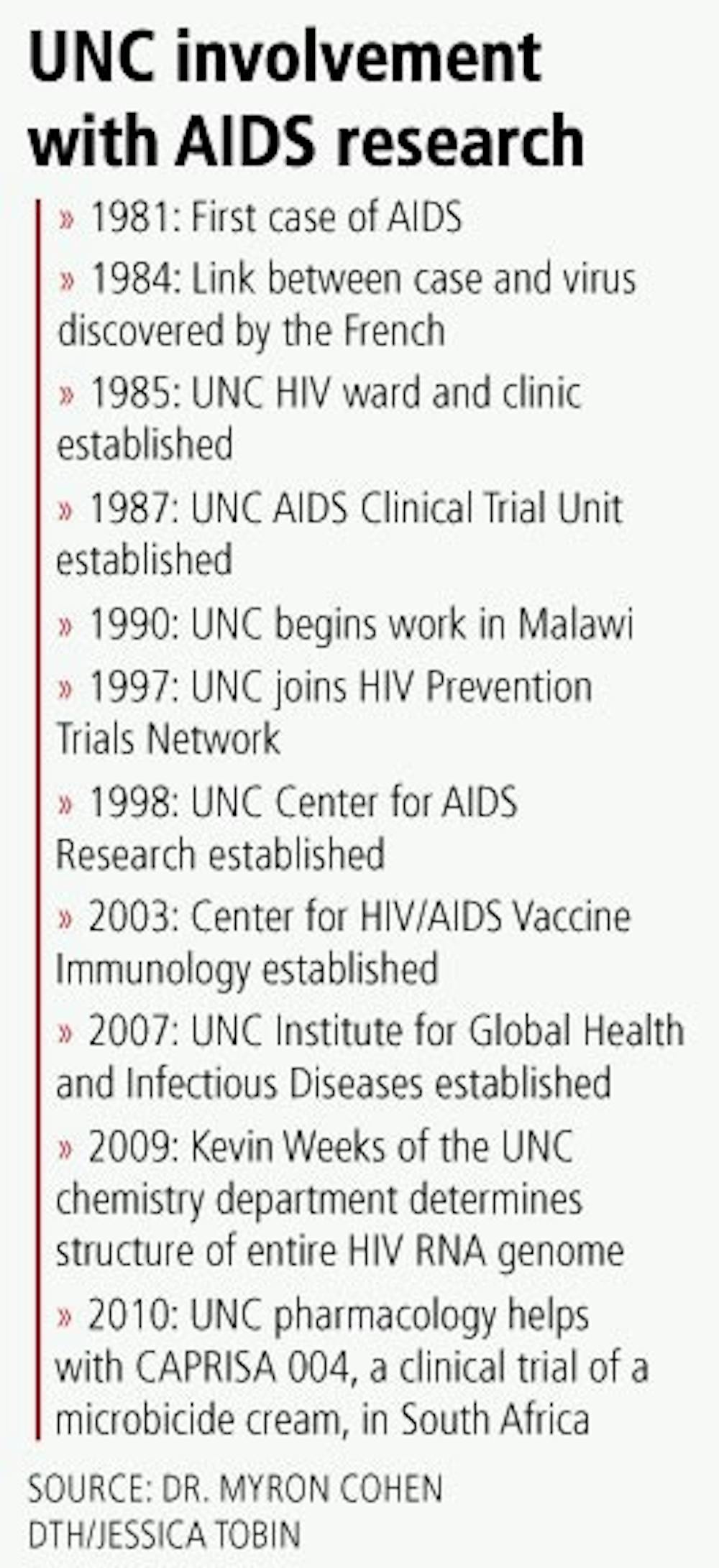University AIDS researchers, prideful of programs that ranked 8th in the country last year, say they are fearful that budget cuts could slash away at funds and resources.
Dr. David Margolis, professor of medicine, said he is particularly concerned with the future of funding from the National Institutes of Health, the primary pipeline for AIDS research funding at UNC and nationwide.
As the government faces pressures to cut costs, that funding has become jeopardized, he said.
Margolis said the NIH grant acceptance rate has recently fallen to the 8th percentile, so 92 percent of projects aren’t chosen to be funded.
“Good times would be the 20th percentile,” he said. “Now it’s the 8th, and it’ll probably be less than that soon.”
Ronald Swanstrom, director of the University’s Center for AIDS Research, said the center is funded mainly by NIH funding, though it also receives supplemental funding from the University. The University’s NIH research portfolio is in excess of $30 million.
“The University provides some matching funding for the developmental awards,” he said. “They provide some discretionary funds just to help administer the (Center for AIDS Research) and then we get an equipment allowance to keep up with equipment needs.”
Researchers said the University currently has three priority areas in AIDS research: prevention, treatment and therapy, and the quest for a functional cure.
Preventative efforts include creating effective vaccines and working with microbicides, which can take the form of pills or topical creams.



